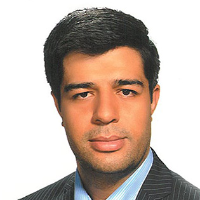Formation and Evolution of State-Sponsored Nation Building in the UAE
Author(s):
Article Type:
Research/Original Article (دارای رتبه معتبر)
Abstract:
The founding of the United Arab Emirates in the early 1970’s was the product of a political will to unite a set of tribal communities in which their dominant identity was a combination of tribal and Islamic identity. The conversion of the emerging country from a disintegrated collection into a cohesive political unit required the creation of elements that constructs national identity and its internalization and generalization as an identity beyond tribal belongings and below national belongings that binds citizens together and gives them a sense of nationhood. Given to the chronological precedence of the state establishment over the nation, and to the centrality of political institutions and elites, the nation building experience in the UAE is an obvious sample of a nation building pattern that can be called "state-sponsored nation building". State-sponsored nation building as a form of nation building in modern age is a process "from above" during which the state and its institutions try to shape elements and components of national identity and to develop it among their citizens, through the design and implementation of targeted projects; and thus create a new basis for social belonging. The present article attempts to examine the dimensions, elements, and technics of such a process in the United Arab Emirates at the Mohammed bin Zayed Al Nahyan era. Based on the "modernist" theorists’ studies about nationalism, this article categorizes and studies the technics of nation building under four axes: a. tradition-constructing; b. history-constructing; c. symbol-constructing; d. alter-constructing.
Keywords:
Language:
Persian
Published:
Journal of Political and International Approaches, Volume:14 Issue: 1, 2023
Pages:
149 to 176
https://magiran.com/p2527481
سامانه نویسندگان
مقالات دیگری از این نویسنده (گان)
-
Max Weber and the Organizational-Economic Foundations of the Rise of the “Vocational Politician”
*, Sajjad Ahmadian
Political Quartely, -
The relationship between the Institutionalization and the performance of the Tudeh Party In the years 1320 to 1332
Mohammed Shafieefar*, Mohammed Mahboubi, Seyed Ali Mahdion
Journal of Contemporary Socio-Political Developments in Iran, -
The Economic Thought and Practice of Mir Mustafa Alinasab
*, Mostafa Salimimofrad
Journal of Economic Literature, -
Theoretical Models of Explaining the Islamic Revolution: Liberation Theology as an Alternative Framework
Mohammad Shafieefar *,
Political Quartely,



